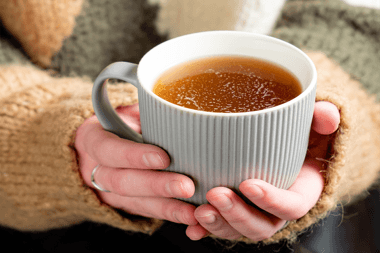Zapped by Fatigue?
What pulled the plug on your energy? Anemia is one of the leading causes of everyday fatigue in North American women. It is caused by reduced levels of hemoglobin, which is the iron-containing protein that is responsible for delivering oxygen to the cells.
Anemia is one of the leading causes of everyday fatigue in North American women. It is caused by reduced levels of hemoglobin, which is the iron-containing protein that is responsible for delivering oxygen to the cells. When hemoglobin is low, the body is unable to burn off the sugar to produce energy.
Anemia can make you feel tired after just minutes of light exertion. Other symptoms include a sallow, haggard complexion, weakness, vertigo, headache, tinnitus (ear ringing), spots before the eyes, loss of libido, amenorrhea (scanty menstruation), drowsiness, irritability and sometimes downright bizarre behaviour.
Iron-deficiency anemia is the most common type, especially among women and the elderly. Iron reserves can be depleted by a poorly balanced diet, a diet low in iron and the consumption of devitalized, processed foods. Occult bleeding from your gastrointestinal tract, heavy periods and hemorrhoids can also cause severe anemia. If you suspect you're anemic, consult your health-care practitioner for a blood test to determine the extent and type of anemia from which you may be suffering.
A number of vitamins and minerals are needed for the production of hemoglobin and red blood cells, but iron is the most essential. Fresh, raw leeks are an excellent food source for combating iron-deficiency anemia. One leek contains over twice the amount of iron contained in a cup of other leafy vegetables. In addition, leeks are a good source of vitamin C.
Parsley is another outstanding source of iron. Spinach contains a moderate amount of iron, but it remains a useful healing food for anemia because it contains an ideal combination of nutrients important for blood building, including iron, vitamin C, copper, iodine and chlorophyll.
A small but essential amount of copper contained in apricots and almonds acts along with iron and vitamins as a catalyst in the synthesis of blood hemoglobin. Copper also boosts iron absorption.
Foods such as mangoes, raisins, red beets, spinach and lettuce supply a good form of vegetable hemoglobin.
One cup of freshly sprouted mung seeds, taken early morning on an empty stomach, make for a naturopath's favourite dietary advice. Ayurvedic medicine recommends an emulsion of black sesame seeds in two tablespoons of milk, taken with a dash of honey, twice a day on an empty stomach.
Two recommended juice combinations are: carrot and spinach (two glasses in the ratio 3:1) or carrot, celery and beet (two glasses in the ratio 4:3:1).
After determining the cause of your anemia, supplementation may be recommended. Ferrous sulphate, ferrous fumarate and ferrous gluconate are the most available forms of iron supplements. Vitamin C significantly assists in the absorption of iron and should always be taken with iron. The minerals calcium and zinc, and vitamin E should not be taken at the same time as iron as they hinder absorption.
Supplements of trace elements, vitamin B12 and folic acid are also necessary for the proper production of hemoglobin. In a study in which women received either iron alone, or folate alone, or iron and folate together, only 26 percent of those who received a single nutrient showed a rise in hemoglobin, while 96 percent of those who received iron and folate had a rise in hemoglobin levels.
Lastly, avoid stress. Anemia is often caused by sustained stress and anxiety. Stress interferes with the production of hydrochloric acid, which is essential for the assimilation of proteins and iron.
Canadian Women Need Iron
Experts estimate that 29 to 84 percent of young Canadian women do not get enough iron. In one Health Canada survey, 59 percent of pregnant women had depleted iron stores. Of those, one percent had anemia. Of the 58 pregnant adolescents whose iron needs were even higher, approximately 78 percent had impaired iron status and 22 were reported to be anemic.
The Anemia Institute
The Anemia Institute for Research and Education (AIRE) is a non-profit organization dedicated to generating and sharing knowledge as well as research about anemia. AIRE's headquarters are based in Toronto with regional offices in Montreal and Vancouver. Phone: 1-877-99ANEMIA. Website: anemiainstitute.org.




